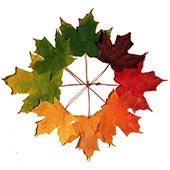 |
Tschonoski Maple – Acer tschonoskii Family Aceraceae This uncommon plant makes a rare appearance in North America. Zone: 3-9 |
Custom Search
|
| Native to Asia -temperate; Russian Far East: Russian Federation – Kurile Islands, Primorye; China: China – Jilin, Liaoning; Eastern Asia: Japan – Hokkaido, Honshu, Kyushu, Shikoku; Korea |
|
In the Northern hemisphere, maples grow in the North American temperate zone, and California, Europe and Asia. They also grow in Asia's South-Eastern tropical zone and can be found in Indonesia on Java and Sumatra, in the Philippine, mountains of Borneo and Malaysia. They grow, too, in the Mediterranean Basin, in the Balkans, on Cyprus and Crete and in Libya, Turkey, Iraq, Iran, Afghanistan and Pakistan. In Asia, they are widespread in China, Japan, Korea, Manchuria and Eastern Siberia, as well as on Sakhalin and the Kurile Islands.
Red Maple is easily transplanted and usually develops surface roots in soil ranging from well-drained sand to clay. It is not especially drought tolerant, particularly in the southern part of the range, but selected individual trees can be found growing on dry sites. This trait shows the wide range of genetic diversity in the species.
Branches often grow upright through the crown forming poor attachments to the trunk. These should be removed in the nursery or after planting to help prevent branch failure in older trees during storms. Select branches with a wide angle from the trunk and prevent branches from growing larger than half the diameter of the trunk. This will help reduce storm damage. [2] |
| References 1. Tschonoski Maple, Morton Arboretum acc. 289-73*3, photos by Bruce Marlin 2. The Morton Arboretum, Red Maple |
| Tree Encyclopedia / North American Insects & Spiders is dedicated to providing scientific and educational resources for our users through use of large images and macro photographs of flora and fauna. |

|
Family Aceraceae – Maples |
